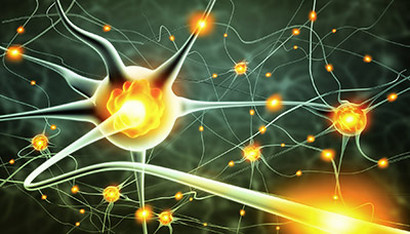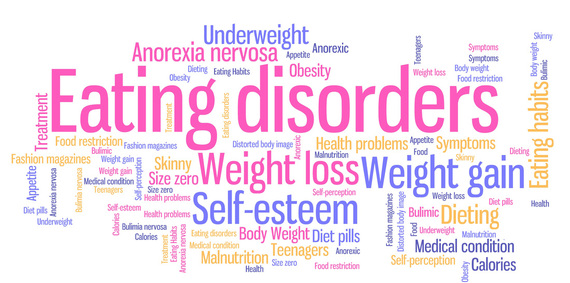About Me

As a native and lifelong resident of the San Ramon Valley, I have a deep understanding of the challenges that face both individuals and families in this area. On the one hand we are blessed with an abundance of opportunities, resources & prosperity. At the same time, we still confront relationship difficulties, emotional struggles, abuse, addiction, & eating disorders, to name just a few. My passion is helping each person or family navigate through their life challenges and find new strategies for living that bring more ease, peace, and fulfillment.
My education includes both a Bachelor of Arts in Psychology from the University of California, and a Master of Arts in Counseling Psychology from JFK University, with an emphasis in Holistic Health. I am a California Licensed Marriage & Family Therapist (Lic. 33325). I am trained in Sensorimotor Psychotherapy, a somatic method of working with symptoms resulting from stress & trauma. I consistently seek continuing education in myriad areas related to my work, because I truly love what I do and am so interested in learning more about it. And there is always more to learn! My primary interest areas are focused primarily on neurochemistry, the mind/body connection, and integrative models of health.
The foundation of my work are the concepts of wholeness and integrity. I follow this thread on an intrapersonal level (within the individual), interpersonal level (between the individual and others in their life), as well as on a “life path” level (where have you been, where are you now, where are you headed). My goal is to help you flourish to your fullest potential, by facilitating a release of old patterns that are impeding your ability to live and be present as fully functional and fulfilled a way as possible.
My education includes both a Bachelor of Arts in Psychology from the University of California, and a Master of Arts in Counseling Psychology from JFK University, with an emphasis in Holistic Health. I am a California Licensed Marriage & Family Therapist (Lic. 33325). I am trained in Sensorimotor Psychotherapy, a somatic method of working with symptoms resulting from stress & trauma. I consistently seek continuing education in myriad areas related to my work, because I truly love what I do and am so interested in learning more about it. And there is always more to learn! My primary interest areas are focused primarily on neurochemistry, the mind/body connection, and integrative models of health.
The foundation of my work are the concepts of wholeness and integrity. I follow this thread on an intrapersonal level (within the individual), interpersonal level (between the individual and others in their life), as well as on a “life path” level (where have you been, where are you now, where are you headed). My goal is to help you flourish to your fullest potential, by facilitating a release of old patterns that are impeding your ability to live and be present as fully functional and fulfilled a way as possible.
Anxiety & Depression

Depression and anxiety are epidemic in our culture; they seem to be the ailments of our time. They can be triggered by a myriad of factors: psychological, physical, emotional, environmental, social, spiritual, and familial. For some people they are recent & acute, while for others they have been longstanding (likely unwelcome) companions throughout their life.
A variety of treatment methods can be effective in the treatment of depression and anxiety. Medication is a very common form of treatment, but it is only one tool among many that can be utilized. Studies show that even for those who do utilize medication, the best results are achieved when it is combined with psychotherapy. Depending on your specific needs, I might use psychodynamic, cognitive behavioral, mindfulness, or somatic modalities. Most commonly I use a combination of those approaches tailored to your symptoms. I might also make suggestions about activities, relationship adjustments, or environmental changes that I feel might help to relieve your emotional distress. I am always looking to maximize the organic factors that can improve your quality of life and functioning, and will be forces for enduring change.
A variety of treatment methods can be effective in the treatment of depression and anxiety. Medication is a very common form of treatment, but it is only one tool among many that can be utilized. Studies show that even for those who do utilize medication, the best results are achieved when it is combined with psychotherapy. Depending on your specific needs, I might use psychodynamic, cognitive behavioral, mindfulness, or somatic modalities. Most commonly I use a combination of those approaches tailored to your symptoms. I might also make suggestions about activities, relationship adjustments, or environmental changes that I feel might help to relieve your emotional distress. I am always looking to maximize the organic factors that can improve your quality of life and functioning, and will be forces for enduring change.
Eating Disorders
Eating disorders are complex & challenging, yet at the same time fascinating and compelling. They baffle us: why would someone starve themselves, binge, purge, compulsively exercise? They draw from and affect every area of someone’s existence: social, emotional, familial, spiritual, occupational, physical. In reality they are complex psychiatric diagnoses that need specialized care. Each person’s journey to healing is unique, because the balance of factors that come together in the development of an eating disorder is going to be very different for each person. Treatment on the one hand addresses the behaviors, or symptoms; while at the same time seeks to learn the contributing factors that were instrumental for that particular person in how they came to develop issues around food & eating.
Treatment is most often delivered with a team approach: the therapist works in close collaboration with a medical doctor, a nutritionist, and if needed, a psychiatrist; each provider managing the specific area related to their scope of practice. It is crucial that each member of the team be a specialist in treating eating disorders and have both clinical training and experience in the field. The experienced team will communicate frequently and make adjustments to the treatment plan as needed, with the goal of symptom reduction and ultimate eradication of the eating disorder.
Treatment is most often delivered with a team approach: the therapist works in close collaboration with a medical doctor, a nutritionist, and if needed, a psychiatrist; each provider managing the specific area related to their scope of practice. It is crucial that each member of the team be a specialist in treating eating disorders and have both clinical training and experience in the field. The experienced team will communicate frequently and make adjustments to the treatment plan as needed, with the goal of symptom reduction and ultimate eradication of the eating disorder.
Stress / Trauma

Research into the effects of stress and trauma is at the forefront of the field of psychology today. Emerging data from neuroscience is showing us how significant our early life experiences are in shaping our brain development. We are even able to track interaction patterns between infant and caregiver at the cellular level by looking at mirror neurons, which form a feedback loop between the brain of the child and the brain of their caregiver. These show us that brain development is closely tied to the emotional climate of the young child’s environment. The impressions made at that time, affect how the child's brain will respond to and interpret later life experiences. This helps us understand how some seemingly irrational or problematic behavior in a teen or adult, might actually be a direct result of experiences that the person might not even remember. It is actually most common that a person does NOT have specific memories, but only has symptoms which are interfering with their functioning and quality of life. These symptoms are quite varied but a sample might be: insomnia, anxiety, lack of enjoyment or passion, anger issues, self harm, addictions, eating disorders, chronic illness, depression, chaotic or unsatisfying relationships, difficulty sustaining jobs or relationships, self defeating behaviors, poor self esteem.
Fortunately, neuroscience has also made clear that our brains possess what is called “neuroplasticity”, which in simple terms means the ability to continue to grow and evolve, throughout our life span. So change and growth is always possible. From everyday life stressors, to painful or traumatic encounters, our body and brain are shaped by our experiences. Therapy can help provide new and healing experiences that work with our brain’s ability to learn new patterns and find new freedom in our choices and relationships.
This is where somatic methods of therapy can be essential. Our early attachment experiences, as well as traumatic experiences, are encoded somatically: in our bodies. In order to effectively transform those patterns which are problematic, we must work at the somatic level; what we call "bottom-up" processing, not "top-down" processing. Shifting what happens deep inside, from the bottom up, leads to deeper and more permanent changes in our beliefs and emotions.
Fortunately, neuroscience has also made clear that our brains possess what is called “neuroplasticity”, which in simple terms means the ability to continue to grow and evolve, throughout our life span. So change and growth is always possible. From everyday life stressors, to painful or traumatic encounters, our body and brain are shaped by our experiences. Therapy can help provide new and healing experiences that work with our brain’s ability to learn new patterns and find new freedom in our choices and relationships.
This is where somatic methods of therapy can be essential. Our early attachment experiences, as well as traumatic experiences, are encoded somatically: in our bodies. In order to effectively transform those patterns which are problematic, we must work at the somatic level; what we call "bottom-up" processing, not "top-down" processing. Shifting what happens deep inside, from the bottom up, leads to deeper and more permanent changes in our beliefs and emotions.
Adolescents

Working with teens is one of my favorite parts of my practice.
Adolescence is such a dynamic and pivotal time of life. There are developmental tasks that are unfolding, combined with environmental, social, and academic pressures. This may be the time when issues that were previously only seen as a flash, emerge full force and demand to be addressed. I work with teens on many of the same topics that may bring an adult into therapy: depression, anxiety, eating/body image struggles, drug or alcohol use, relationship challenges.
At a time when relationships with parents may be strained and there may not be other supportive adult relationships readily available; therapy can be a place for your teen to open up and discuss their life challenges in a supported and safe place. In addition to a safe container, therapy with me provides the benefit of a trained & experienced clinician who can be evaluating their emotional and physical wellness and safety. Making recommendations for adjunct services or higher levels of care is a routine part of managing adolescent therapy. Above all, I seek to honor each teen’s unique journey of unfolding self-hood; and to support their ability to find their way in a vast and sometimes overwhelming world.
Adolescence is such a dynamic and pivotal time of life. There are developmental tasks that are unfolding, combined with environmental, social, and academic pressures. This may be the time when issues that were previously only seen as a flash, emerge full force and demand to be addressed. I work with teens on many of the same topics that may bring an adult into therapy: depression, anxiety, eating/body image struggles, drug or alcohol use, relationship challenges.
At a time when relationships with parents may be strained and there may not be other supportive adult relationships readily available; therapy can be a place for your teen to open up and discuss their life challenges in a supported and safe place. In addition to a safe container, therapy with me provides the benefit of a trained & experienced clinician who can be evaluating their emotional and physical wellness and safety. Making recommendations for adjunct services or higher levels of care is a routine part of managing adolescent therapy. Above all, I seek to honor each teen’s unique journey of unfolding self-hood; and to support their ability to find their way in a vast and sometimes overwhelming world.
Resources
Eating Disorders
- NEDA: National Eating Disorders Association. www.nationaleatingdisorders.org
- BEDA: Binge Eating Disorders Association. www.bedaonline.com
- ANAD: Anorexia & Associated Disorders. www.anad.org
- Something Fishy: Education & Resources. www.something-fishy.org
- Gurze: Catalog & Resources. www.edcatalog.com
- www.nationaleatingdisorders.org/blog/what-exactly-arfid /Article on the newest eating disorder diagnosis-ARFID
Parenting
Stress/Trauma
|
|





